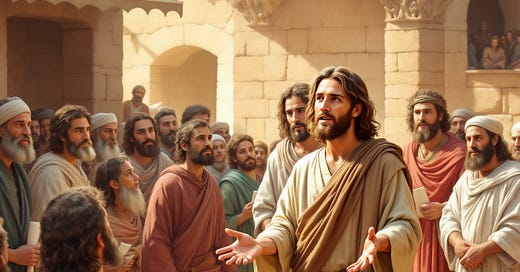The Art of Debate: A Timeless American Fascination
From Lincoln to Jesus, Embracing Intellectual Engagement in Public Discourse
Public debates have long captured the American imagination, serving as a platform for intellectual engagement and societal progress. From the muddy fields where farmers gathered to hear Abraham Lincoln and Stephen Douglas in the 1860 presidential run-up, to the captivating television debate between John F. Kennedy and Richard Nixon in 1960, Americans have always been drawn to the spectacle of public discourse. Today, cable news outlets and social media dissect every word spoken by candidates, reflecting our enduring love for rational disputes in the service of our nation.
In a similar vein, the biblical figure Jesus was also a master of public debate. The Gospel of Mark recounts a moment when a scribe approached Jesus, impressed by his ability to engage in thoughtful discourse, and asked him, "Which commandment is the first of all?" Jesus' response was both brief and profound: the double command to love God and neighbor. Notably, he emphasized the importance of loving God with all one's mind, suggesting that true devotion requires more than affection, loyalty, or religious dedication. It demands honest and intense intellectual engagement, akin to that of an accomplished debater.
Check out the Podcast
Practically speaking, how can we love God with our minds? One simple approach is to embrace lifelong learning. This can involve setting aside time for reading, participating in book studies, enrolling in online classes, and perhaps most challenging of all, engaging in open, honest, and curious conversations with those who hold different viewpoints. These activities are not only ways to love God with our minds but are also crucial for the well-being of our country and church. They depend greatly on individuals who pursue truth with intellectual vigor.
Let us commit to loving God with our minds, engaging in a tireless pursuit of truth, and fostering a culture of thoughtful and respectful public discourse.




